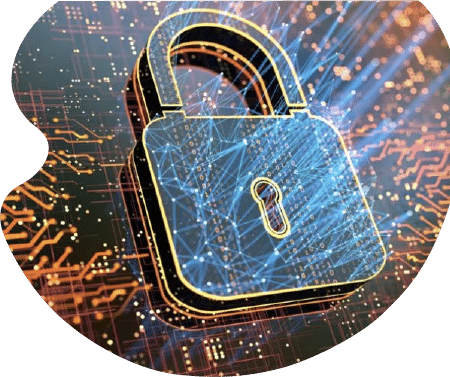Companies across every industry depend more and more on technology to run their businesses, store sensitive data, and carry out essential operations. With the rise in cybersecurity threats and tough technology regulations, organizations must have a robust security plan to meet IT compliance standards. However, since no two companies are the same, and every business has unique needs, a one-size-fits-all compliance plan is not enough to establish a compliant and effective information security program.
The Current Threat Landscape
Organizations using digital technology and cloud software face a complex threat landscape that grows increasingly sophisticated. Ransomware attacks, phishing attacks that attempt to trick people into sharing sensitive data, advanced persistent threats (APTs), and well-funded, determined attackers all target companies to steal intellectual property or disrupt operations.
Then there’s the explosion in connected IoT devices, standing at 15.14 billion as of 2023, and the high risk of DDoS attacks. With individual cyber breaches costing upwards of US$4.35 million, failure of a one-size-fits-all solution can be dangerous and expensive.
Generic Compliance Plan Pitfalls
IT departments these days use many different architectures with various hardware, software, and network configurations. Because of these differences, it’s difficult to create a single cybersecurity formula that works for all companies. Some of the pitfalls of trying to cut corners and save costs by implementing a generic plan include:
- Lack of customization: A one-size-fits-all approach doesn’t consider the specific problems and needs of each company. What works for one organization may not be enough to address the weaknesses and particular requirements of the next. It’s important to customize security measures to fit the unique characteristics of each company to effectively protect against cyber threats.
- Increased risk of breaches: When companies use a standardized compliance plan, it sets a basic level of security. However, this plan might not take into account the specific risks and security gaps that exist in each organization. Without customized security measures, a greater chance exists of experiencing data breaches or cyberattacks.
- Higher chance of vulnerabilities: Cybercriminals take advantage of vulnerabilities that are often not addressed in a generic security plan. In the past, we have seen the severe consequences of inadequate security measures. Well-known breaches caused by a lack of tailored security have resulted in large-scale data leaks, compromised customer information, and significant financial losses for companies.
To keep your data safe, protect against cyberattacks, build trust with customers, and combat the potential risks and consequences of non-compliance, you need a plan tailored for your organization.
The Cost of Corner-Cutting
Few young companies are equipped to handle and overcome the financial and business losses following an attack. The direct costs can be considerable, including legal proceedings, recovering lost data, and repairing damage to the company’s reputation. Fines, penalties, and legal settlements can reach millions of dollars. Restoring compromised systems, conducting investigations, and enhancing security measures add to the expenses.
A cybersecurity incident can also seriously disrupt your company operations, resulting in downtime and lost productivity. Systems can become inaccessible, affecting critical tasks and leading to delays or disruptions in operations. Additionally, a breach damages the trust and loyalty of customers, which can cause the company to lose revenue and harm its reputation in the long run.
Advantages of a Human-Centric Approach
In many cybersecurity incidents, human error plays a significant role. According to Verizon’s 2022 Data Breaches Investigations Report, 82% of data breaches involved a human element. From being victims of phishing scams to using weak passwords, employees accidentally create vulnerabilities that cyber attackers take advantage of. By adopting a human-centric approach, organizations (especially startups) can establish a strong defense and create a culture where everyone in the company values security. To achieve this, your company must:
1. Invest in education
A human-centric approach propels your organization to provide thorough training that creates a culture of cybersecurity awareness. Education empowers your employees to recognize and handle suspicious emails, avoid clicking on harmful links, and use safe practices when dealing with sensitive information.
2. Keep employees informed
When employees are kept informed about the latest threats and know how to protect company assets, they feel responsible for protecting the company’s digital assets. By tailoring your training to address the specific risks employees face and keeping them up to date, your workers become the first line of defense against potential attacks.
3. Empower proactive defense
Companies that recognize a human focus is crucial for quality cybersecurity goals equips employees with the knowledge and skills to prevent cyber incidents proactively. This helps them to successfully reduce the number of threats unique to their industry or work environment.
Tailor Compliance Plans to Meet Organizational Needs
Customizing security and compliance to match your company’s unique environment brings several benefits. It allows you to address the specific vulnerabilities and risks that apply to your operations. It lets you focus your resources on the most critical areas and ensures your security efforts are efficient and effective.
Customization also ensures that your security measures align with your company’s goals, values, and compliance requirements, putting you in a stronger position to resist cyber threats. By considering factors like the types of data you handle, your IT infrastructure, and the skills of your workforce, you can develop a security approach that is targeted and relevant to your specific situation.
A human-centric compliance and cybersecurity program integrating technology and employee involvement gives you a holistic and robust defense against cyber threats.
You can read the original article posted in Forbes by Rhymetec CEO, Justin Rende.
Need custom cybersecurity and compliance solutions?
Hire a vCISO with years of experience in cloud security at a fraction of the cost of hiring a full-time CISO in-house. Rhymetec’s custom vCISO services adapt to your organization’s cybersecurity and compliance needs and scale as you grow over time. Providing executive-level security leadership, a dedicated Rhymetec vCISO can assess your organization’s cyber risk, develop an internal InfoSec Program, and assist in the compliance and security needs that align with your business.
Interested in reading more? Check out our blog:

